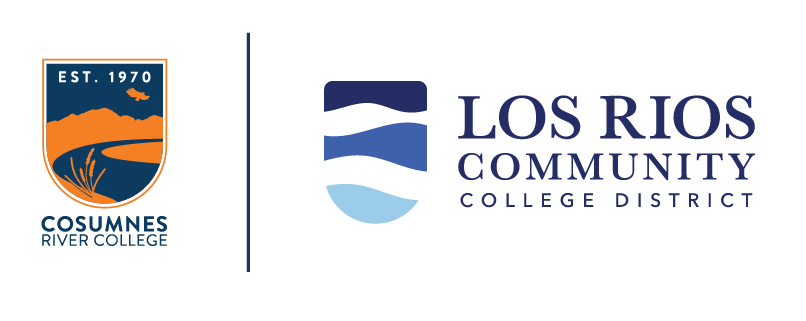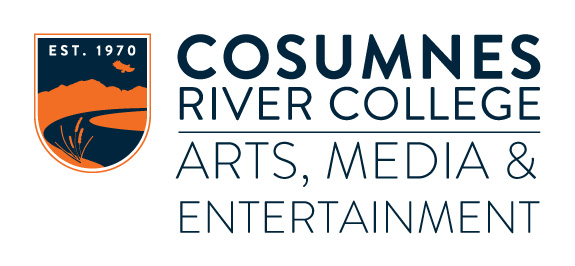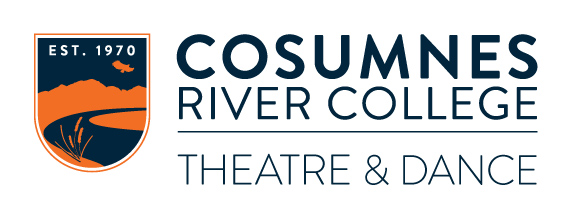
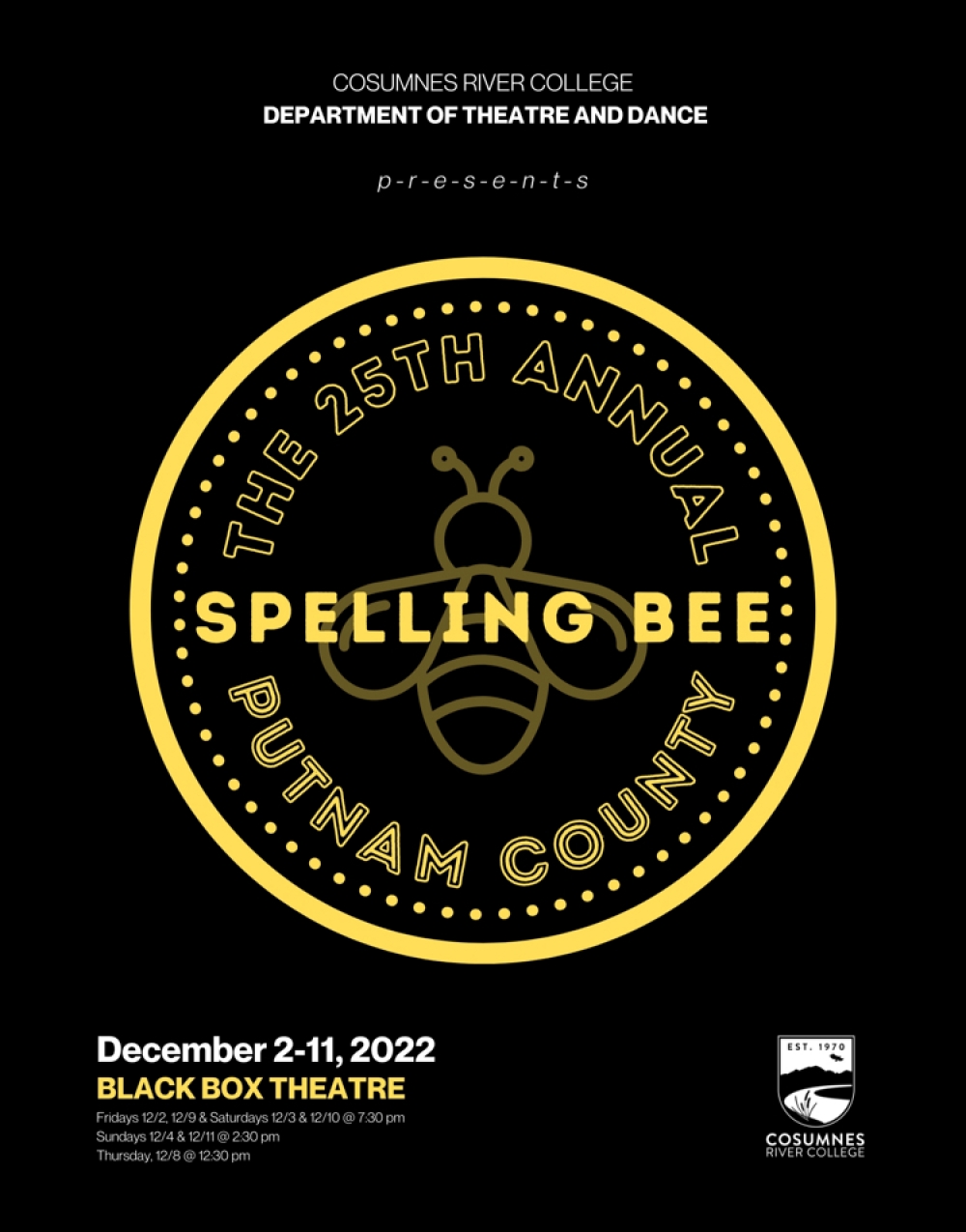
|
The 25th Annual Putnam County Spelling Bee |
|||||||||||||||||||
|
William Finn |
|
|
|||||||||||||||||
|
|
|
||||||||||||||||||
|
|
|
||||||||||||||||||
| Originally Directed on Broadway by James Lapine | |||||||||||||||||||
|
Originally Produced on Broadway by David Stone, James L. Nederlander, Barbara Whitman, Patrick Catullo, Barrington Stage Company, Second Stage Theatre |
|||||||||||||||||||
|
|
|||||||||||||||||||
| DECEMBER 2-11, 2022 @ the BLACK BOX THEATRE | |||||||||||||||||||
| Performance Length: 90 minutes plus one 15-minute intermission | |||||||||||||||||||
|
|
|||||||||||||||||||
|
Featuring |
|||||||||||||||||||
| ABYEE HEMSWORTH | BRIANNA BROCK | DOMINIC KAI PALMER | |||||||||||||||||
| ESTEBAN MOCTEZUMA | JIANNA EUGENIO | JOUELLE KIMURA | |||||||||||||||||
| KYLIE LANG | LAURA CROSIER | MAU SOTELLO | |||||||||||||||||
| ROMAN STEWART | SARAH REEDS | TEJON RAIFORD-HAYGOOD | |||||||||||||||||
| Scenic Design | Costume Design | Lighting, Sound & Projection Design | |||||||||||||||||
| SCOTT GILBERT | AUDREY WALKER | CARY BABKA | |||||||||||||||||
| Production Stage Manager | Choreography by | Musical Direction by | |||||||||||||||||
| ASHLEY PENNEY | JOAN TIERNEY | KAY HIGHT | |||||||||||||||||
| Directed by | |||||||||||||||||||
| RYAN PEREZ ADAME | |||||||||||||||||||
THE 25th ANNUAL PUTNAM COUNTY SPELLING BEE |
|||||||||||||||||||
Follow Us:
DIRECTOR'S NOTES
Standardizing spellings and pronounciations for American English was the impetus for Noah Webster’s 1806 work A Compendious Dictionary of the English Language, which would become the basis for the Merriam-Webster dictionary. The first spelling competitions (“Spelling Matches”) were used as opportunities to sell dictionaries. Trying to standardize the English language was, to people like Webster, an important step in creating a cohesive national identity to the geographically massive United States; later in the 19th century, the same would be done to standardize time keeping, in part for the sake of the new continental railroad system to run predictably on time. These efforts bled into other places too, including in actor training with the invented “Mid-Atlantic” dialect (Katherine Hepburn being a prime example) that sought to delineate “good speech” for the stage.
Standardization for the sake of collective identity often belies something darker: oppression and erasure. Control of language has long been a tool of oppression used against specific communities. Often in service of the forced assimilation of immigrants, control of language was weaponized by colonial powers all over the world, and one need not look further than our own California missions wherein Native Americans were generally prohibited from speaking their native languages while being forcibly converted to Christianity and often enslaved.
Language reflects and gives voice to culture. There are terms and expressions in other languages that have no translation, or which are more succinct than our English language counterparts. Look up the Yiddish word “mensch” for an example. Limiting language limits expression and creativity. It limits understanding. And because language itself is a qualification for the majestic and the sublime alike, limiting our limitations isn’t just an academic matter: it places unnecessary boundaries on our spiritual beings. We have collectively lost stories and lessons from cultures with predominantly oral histories whose languages have been decimated. Do we believe that we could not benefit today from those stories of survival, of life, of creation, of what it means to be human? Of how to live together peaceably?
I love THE 25TH ANNUAL PUTNAM COUNTY SPELLING BEE because it celebrates language, it celebrates the moment of ideation, of thought, of creation. Whether the words are our spellers’ friends or nemeses, their salvation or betrayers, we can understand that those words stand in for so much more: their loves, hopes, insecurities, delights, and fears. At a time in our culture in which language is not only being weaponized through anonymity, but employed to belittle, and proffer thoughtless opinions, unmoored from reality, perhaps we need this reminder: all language is a qualification, an attempt to describe the indescribable mysteries that transcend the smallness of the world we pen ourselves into.
-RYAN PEREZ ADAME
Song List
ACT ONE
"The 25th Annual Putnam County Spelling Bee"
"Rona's Favorite Moment #1"
"The Rules"
"My Friend The Dictionary"
"Pandemonium"
"I'm Not That Smart"
"Magic Foot"
"Pandemonium (Reprise)"
"Rona's Favorite Moment #2"
"The Prayer Of The Comfort Counselor"
ACT TWO
"Chip's Lament"
"Woe Is Me"
"Spelling Montage"
"I'm Not That Smart (Reprise)"
"I Speak Six Languages"
"The 'I Love You' Song"
"Woe Is Me (Reprise)"
"Rona's Favorite Moment #3"
"Second"
"The Champion"
"Finale"
Cast
Creative Team
Ryan Perez Adame
Kay Hight
Joan Tierney
Audrey Walker
Scott Gilbert
Cary Babka
Ashley Penney
Slater Saylor
Tricia Tecson
Martin Flynn
David Fulk
Colin Chan
James Downs
Victoria Truesdale
William Finn
Rachel Sheinkin
Rebecca Feldman
The Farm
Meet the Company
Abyee Hemsworth
 Abyee is very excited to be in her second show at CRC. She last played Junie B. Jones in JUNIE B. JONES: JINGLE BELLS, BATMAN SMELLS (P.S. SO DOES MAY). She also plays the piano, danced competitively for many years and has sung since she was little. This is Abyee’s first musical and she is very excited to be a part of it!
Abyee is very excited to be in her second show at CRC. She last played Junie B. Jones in JUNIE B. JONES: JINGLE BELLS, BATMAN SMELLS (P.S. SO DOES MAY). She also plays the piano, danced competitively for many years and has sung since she was little. This is Abyee’s first musical and she is very excited to be a part of it!
Brianna Brock
 Vocalist Brianna Brock native to California, has been engulfed in music since a child. Brianna began expanding to jazz music as a vocalist, performing professionally with the Sac Swing Collective. More recently, creating her own outlet for jazz music with her band The Interlude.
Brianna is currently transferring to complete a bachelor's degree in music. She has been contributing to Cosumnes River College’s music program as a cellist and vocalist. She has been awarded four musical scholarships, which are the Mike Daly Music Award (2022), The Midge & Kenneth Waddell Aspiring Vocalist Award (2022), The Nina Simone Music in Action Scholarship Award (2022) and lastly has gained recognition placing third from the Sacramento Master Singers (2022). She is expanding her musical background and working with building a repertoire in Classical music and jazz for both vocal and orchestral performance.
Vocalist Brianna Brock native to California, has been engulfed in music since a child. Brianna began expanding to jazz music as a vocalist, performing professionally with the Sac Swing Collective. More recently, creating her own outlet for jazz music with her band The Interlude.
Brianna is currently transferring to complete a bachelor's degree in music. She has been contributing to Cosumnes River College’s music program as a cellist and vocalist. She has been awarded four musical scholarships, which are the Mike Daly Music Award (2022), The Midge & Kenneth Waddell Aspiring Vocalist Award (2022), The Nina Simone Music in Action Scholarship Award (2022) and lastly has gained recognition placing third from the Sacramento Master Singers (2022). She is expanding her musical background and working with building a repertoire in Classical music and jazz for both vocal and orchestral performance.
Dominic Kai Palmer
Esteban Moctezuma
 Este is honored to be part of each show here at CRC. He started doing a show back in high school during his junior year called LAFAYETTE NO. 1 in a tribute to a loss of a student. Also in CRC, he starred in 2 shows which is In LOVE & WARCRAFT (Raul), and SONNETS FOR AN OLD CENTURY (John Ortiz, Geno Silva). Este is also a theatre designer and creative artist in which he can create projects and props for shows which is his first time doing it this year. This play would be his third show as a second year student at CRC and he would plan to do most of them as he transfers to Sac State.
Este is honored to be part of each show here at CRC. He started doing a show back in high school during his junior year called LAFAYETTE NO. 1 in a tribute to a loss of a student. Also in CRC, he starred in 2 shows which is In LOVE & WARCRAFT (Raul), and SONNETS FOR AN OLD CENTURY (John Ortiz, Geno Silva). Este is also a theatre designer and creative artist in which he can create projects and props for shows which is his first time doing it this year. This play would be his third show as a second year student at CRC and he would plan to do most of them as he transfers to Sac State.
Jianna Eugenio
 Jianna is excited to be making her first musical theatre debut! She is grateful to be a part of this heartfelt show, and is thrilled to work alongside a dedicated cast with exuberating talent and passion. A graduate from Sacramento State University with a BA in Communications, Jianna is currently a music major studying voice at CRC. Jianna previously appeared in the PBS program CELEBRATION OF MUSIC. She would like to express her thanks and appreciation to her family and friends for all their love and support as she pursues her passion for the arts.
Jianna is excited to be making her first musical theatre debut! She is grateful to be a part of this heartfelt show, and is thrilled to work alongside a dedicated cast with exuberating talent and passion. A graduate from Sacramento State University with a BA in Communications, Jianna is currently a music major studying voice at CRC. Jianna previously appeared in the PBS program CELEBRATION OF MUSIC. She would like to express her thanks and appreciation to her family and friends for all their love and support as she pursues her passion for the arts.
Jouelle Kimura
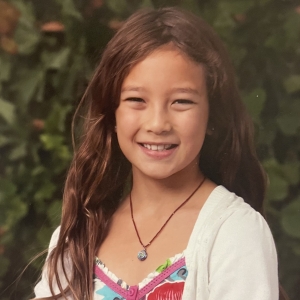 Jouelle is delighted to be at CRC’s Black Box theatre. This is her first musical and she is enjoying every part of the process. Jouelle is currently majoring in the music program here at CRC with a focus on vocal performance. She is a multidisciplinary artist. You may find her anywhere from acting, writing, and producing to training animals, painting, and stunt training. Credits: TECHNICOLOR (Sakura Jones), TRAPPED (Remmy), TALENTED REVOKED (Jessica), NECESSARY EVIL (Bernedette), BASIC (Jamie Thorstad), MICKEY'S TREE (Cross Country Girl).
Jouelle is delighted to be at CRC’s Black Box theatre. This is her first musical and she is enjoying every part of the process. Jouelle is currently majoring in the music program here at CRC with a focus on vocal performance. She is a multidisciplinary artist. You may find her anywhere from acting, writing, and producing to training animals, painting, and stunt training. Credits: TECHNICOLOR (Sakura Jones), TRAPPED (Remmy), TALENTED REVOKED (Jessica), NECESSARY EVIL (Bernedette), BASIC (Jamie Thorstad), MICKEY'S TREE (Cross Country Girl).
Kylie Lang
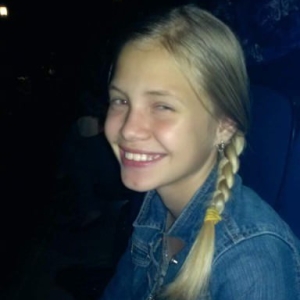 Kylie Lang is an actress who is currently studying psychology at Cosumnes River College and Administration of Justice at Sacramento City College. She is an alumni of Cosumnes Oaks High School where she worked on several productions, most notably as Lilly/Lilith in SHE KILLS MONSTERS and the Captain of the guard in SHREK: THE MUSICAL. She has a passion for performing and has been doing so from a very young age playing Ebenezer Scrooge in A CHRISTMAS CAROL in middle school, and other small productions in elementary school. She hopes to continue this passion in her professional life and maybe study acting abroad in England. She is overjoyed to be a part of this experience with such phenomenal people in such a phenomenal production.
Kylie Lang is an actress who is currently studying psychology at Cosumnes River College and Administration of Justice at Sacramento City College. She is an alumni of Cosumnes Oaks High School where she worked on several productions, most notably as Lilly/Lilith in SHE KILLS MONSTERS and the Captain of the guard in SHREK: THE MUSICAL. She has a passion for performing and has been doing so from a very young age playing Ebenezer Scrooge in A CHRISTMAS CAROL in middle school, and other small productions in elementary school. She hopes to continue this passion in her professional life and maybe study acting abroad in England. She is overjoyed to be a part of this experience with such phenomenal people in such a phenomenal production.
Laura Crosier
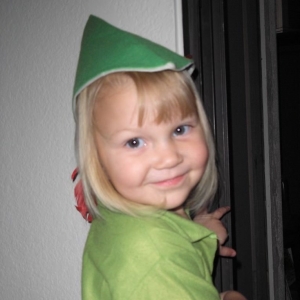 Laura Crosier has been acting singing and dancing since she was as young as Logainne. Through community theater she learned her love of everlasting childhood and continually develops her craft. She has been a lost boy in PETER PAN, Feste in Shakespeare’s TWELFTH NIGHT, and Cinderella in Roger’s and Hammerstein’s CINDERELLA. She loves Improv and was on the On the Spot team in high school. Laura is a music major and a singer-songwriter, and has an album that is coming out in 2023, titled, OVERTHINKING.
Laura Crosier has been acting singing and dancing since she was as young as Logainne. Through community theater she learned her love of everlasting childhood and continually develops her craft. She has been a lost boy in PETER PAN, Feste in Shakespeare’s TWELFTH NIGHT, and Cinderella in Roger’s and Hammerstein’s CINDERELLA. She loves Improv and was on the On the Spot team in high school. Laura is a music major and a singer-songwriter, and has an album that is coming out in 2023, titled, OVERTHINKING.
Mau Sotello
Roman Stewart
 Roman was born on December 15, 1992, he is still in present in the year 2022. Roman is so excited to be back at Cosumnes River College in THE 25TH ANNUAL PUTNAM COUNTY SPELLING BEE. He transferred back to Cosumnes River College from a HBCU in Alabama to complete his goals as a music performance major, and to reach his goal of becoming a Broadway performer.
Roman was born on December 15, 1992, he is still in present in the year 2022. Roman is so excited to be back at Cosumnes River College in THE 25TH ANNUAL PUTNAM COUNTY SPELLING BEE. He transferred back to Cosumnes River College from a HBCU in Alabama to complete his goals as a music performance major, and to reach his goal of becoming a Broadway performer.
Sarah Reeds
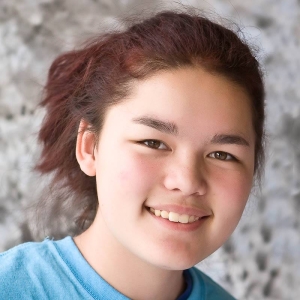 Sarah is so excited to be in Putnam County again! She was last seen on the CRC stage in CHICAGO as Go-To-Hell Kitty in 2017. Since then she's continued to pursue acting through educational and professional opportunities. Favorite roles include Hope in URINETOWN, Kira in XANADU, and Sherrie in ROCK OF AGES. Thanks to her family and teachers who continue to be the best supporters ever. Enjoy the show!
Sarah is so excited to be in Putnam County again! She was last seen on the CRC stage in CHICAGO as Go-To-Hell Kitty in 2017. Since then she's continued to pursue acting through educational and professional opportunities. Favorite roles include Hope in URINETOWN, Kira in XANADU, and Sherrie in ROCK OF AGES. Thanks to her family and teachers who continue to be the best supporters ever. Enjoy the show!
Tejon Raiford-Haygood
 Tejon - known as TJ to his peers - is enthralled to be performing in his first show THE 25TH ANNUAL PUTNAM COUNTY SPELLING BEE. TJ attended Laguna Creek High school, graduating in 2021, and now attends Consumes River College. His hobbies include sports such as: baseball, basketball, and track & field, in addition to theater. He enjoys long walks on the beach and playing video games. TJ is pursuing a degree in Electrical Engineering with a minor in Theatre Arts.
Tejon - known as TJ to his peers - is enthralled to be performing in his first show THE 25TH ANNUAL PUTNAM COUNTY SPELLING BEE. TJ attended Laguna Creek High school, graduating in 2021, and now attends Consumes River College. His hobbies include sports such as: baseball, basketball, and track & field, in addition to theater. He enjoys long walks on the beach and playing video games. TJ is pursuing a degree in Electrical Engineering with a minor in Theatre Arts.
Ryan Perez Adame
 Ryan is thrilled to join the CRC community, having grown up and gone to school in Elk Grove/South Sacramento. He is an actor, director, singer, and visual artist who has taught and performed in schools and theaters in L.A. and Sacramento for more than 20 years. Theater credits include: DURANGO 66 with Teatro Línea de Sombra at REDCAT, DAVID LANG: CROWD OUT at Disney Concert Hall, ANTIGONE (Kreon), HEDDA GABLER (Brack), and THE CONFERENCE OF THE BIRDS at B Street Theatre (Sparrow). Musical theater credits include: THE FANTASTICKS (El Gallo), OKLAHOMA! (Ali Hakim), THE DROWSY CHAPERONE (Aldolpho), THE MUSIC MAN (Harold Hill), and THE PRODUCERS (Roger DeBris). TV: THE MELS. Directorial credits include: the original work CASUALTIES OF WAR (Hollywood Fringe Festival), CHICAGO, YOUNG FRANKENSTEIN, THE ADDAMS FAMILY, NUNSENSE, and THE DROWSY CHAPERONE. Ryan is the co-founder of “The Pinkys”, an all-BIPOC performance collective whose first work WITNESS THE YELLOW PERIL premiered at the Son of Semele Festival in L.A. and was selected for the Edmonton Fringe Festival in Canada; they are currently developing a performance piece exploring folk narratives and the January 6th Insurrection with Theatre Emory/Emory University in Atlanta. Ryan’s first career was in politics and public policy, including working in the State Capitol on LGBTQ+ and health policy issues. He earned his BA in Political Science from U.C. Davis, Master of Public Administration from U.S.C., and his Master of Fine Arts in Performance from CalArts. Ryan currently teaches acting at Musical Mayhem Productions in Elk Grove and here at CRC, and is a proud member of Actors’ Equity and SAG/AFTRA.
Ryan is thrilled to join the CRC community, having grown up and gone to school in Elk Grove/South Sacramento. He is an actor, director, singer, and visual artist who has taught and performed in schools and theaters in L.A. and Sacramento for more than 20 years. Theater credits include: DURANGO 66 with Teatro Línea de Sombra at REDCAT, DAVID LANG: CROWD OUT at Disney Concert Hall, ANTIGONE (Kreon), HEDDA GABLER (Brack), and THE CONFERENCE OF THE BIRDS at B Street Theatre (Sparrow). Musical theater credits include: THE FANTASTICKS (El Gallo), OKLAHOMA! (Ali Hakim), THE DROWSY CHAPERONE (Aldolpho), THE MUSIC MAN (Harold Hill), and THE PRODUCERS (Roger DeBris). TV: THE MELS. Directorial credits include: the original work CASUALTIES OF WAR (Hollywood Fringe Festival), CHICAGO, YOUNG FRANKENSTEIN, THE ADDAMS FAMILY, NUNSENSE, and THE DROWSY CHAPERONE. Ryan is the co-founder of “The Pinkys”, an all-BIPOC performance collective whose first work WITNESS THE YELLOW PERIL premiered at the Son of Semele Festival in L.A. and was selected for the Edmonton Fringe Festival in Canada; they are currently developing a performance piece exploring folk narratives and the January 6th Insurrection with Theatre Emory/Emory University in Atlanta. Ryan’s first career was in politics and public policy, including working in the State Capitol on LGBTQ+ and health policy issues. He earned his BA in Political Science from U.C. Davis, Master of Public Administration from U.S.C., and his Master of Fine Arts in Performance from CalArts. Ryan currently teaches acting at Musical Mayhem Productions in Elk Grove and here at CRC, and is a proud member of Actors’ Equity and SAG/AFTRA.
Kay Hight
 Recently retired as the Assistant Artistic Director for the Sacramento Gay Men’s Chorus, she has spent the last decade working with people from all walks of life and is committed to making the world a better place using the talents and skills she has accumulated throughout her career. Kay is an accomplished pianist, and has worked as a Music Director for choirs, recording artists, and live orchestras all over the West Coast. After attending the American Musical and Dramatics Academy on scholarship with a specialization in Musical Theatre Performance, she returned to her native Northern California roots to help grow the artistic community in the Sacramento region and be closer to her family. In addition to her nine seasons with SGMC as the AAD and Principal Accompanist, Kay also performs with various groups across the region and has thrice been awarded a SARTA Elly Award for her work in local theatre programs.
Recently retired as the Assistant Artistic Director for the Sacramento Gay Men’s Chorus, she has spent the last decade working with people from all walks of life and is committed to making the world a better place using the talents and skills she has accumulated throughout her career. Kay is an accomplished pianist, and has worked as a Music Director for choirs, recording artists, and live orchestras all over the West Coast. After attending the American Musical and Dramatics Academy on scholarship with a specialization in Musical Theatre Performance, she returned to her native Northern California roots to help grow the artistic community in the Sacramento region and be closer to her family. In addition to her nine seasons with SGMC as the AAD and Principal Accompanist, Kay also performs with various groups across the region and has thrice been awarded a SARTA Elly Award for her work in local theatre programs.
Joan Tierney
Audrey Walker
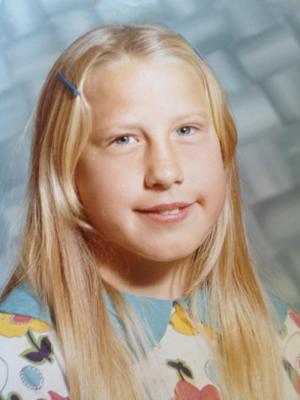 Originally from the Bay Area, Audrey Walker. earned her B.A in Theatre Arts at San Jose State. Audrey has worked professionally for over forty years. Before coming to Sacramento, Audrey worked as an Adjunct Faculty at Ohlone College, teaching hair/make-up, costume construction and design. At Ohlone she designed: MUCH ADO ABOUT NOTHING, SWEET CHARITY, A FUNNY THING HAPPENED ON THE WAY TO THE FORUM, and has earned an honorary Design Award at the Kennedy Center for Time Machine/ Love of the Elio. For the past eleven years, Audrey has worked at Sacramento State University as their Shop Manager and designer. For CSUS she has designed: ROCKY, WORKING, SWEAT, ROMEO & JULIET, SHE KILLS MONSTERS, LES BLANCS, FOR COLORED GIRLS WHO HAVE CONSIDERED SUICIDE WHEN RAINBOW IS ENUF, DARKSIDE, CABARET, GUYS & DOLLS, BROADWAY CHRISTMAS, ZOOT SUIT (where Audrey earned three more Kennedy Design Awards), BROADWAY CHRISTMAS, and HAMLET. Audrey is a new Adjunct Professor at Cosumnes River College (CRC) and has designed ROMEO & JULIET and SERVANT OF TWO MASTERS. Audrey is glad to be back and design THE 25TH ANNUAL PUTNAM COUNTY SPELLING BEE.
Originally from the Bay Area, Audrey Walker. earned her B.A in Theatre Arts at San Jose State. Audrey has worked professionally for over forty years. Before coming to Sacramento, Audrey worked as an Adjunct Faculty at Ohlone College, teaching hair/make-up, costume construction and design. At Ohlone she designed: MUCH ADO ABOUT NOTHING, SWEET CHARITY, A FUNNY THING HAPPENED ON THE WAY TO THE FORUM, and has earned an honorary Design Award at the Kennedy Center for Time Machine/ Love of the Elio. For the past eleven years, Audrey has worked at Sacramento State University as their Shop Manager and designer. For CSUS she has designed: ROCKY, WORKING, SWEAT, ROMEO & JULIET, SHE KILLS MONSTERS, LES BLANCS, FOR COLORED GIRLS WHO HAVE CONSIDERED SUICIDE WHEN RAINBOW IS ENUF, DARKSIDE, CABARET, GUYS & DOLLS, BROADWAY CHRISTMAS, ZOOT SUIT (where Audrey earned three more Kennedy Design Awards), BROADWAY CHRISTMAS, and HAMLET. Audrey is a new Adjunct Professor at Cosumnes River College (CRC) and has designed ROMEO & JULIET and SERVANT OF TWO MASTERS. Audrey is glad to be back and design THE 25TH ANNUAL PUTNAM COUNTY SPELLING BEE.
Scott Gilbert
 Scott is a director, actor, and designer who has taught at CRC for over 10 years. For CRC, he directed THE COMEDY OF ERRORS, THE LIAR, and SIDE MAN, and his design work includes the set for ARMS AND THE MAN and costumes for A MIDSUMMER NIGHT'S DREAM. Previously, Scott was the Producing Director of The Foothill Theatre Company in Nevada City. He directed many productions there and for the Lake Tahoe and Sierra Shakespeare Festivals, including HAMLET, THE TAMING OF THE SHREW, OTHELLO, NOISES OFF, and A CHRISTMAS STORY. Around the country, he has directed, designed, or choreographed fights for literally hundreds of productions. In this region, he has worked with Sierra Rep, Capital Stage, The B Street Theatre, and Sierra Stages. As an actor, he originated the role of Trout Shue in Zona at the Greenbrier Valley Theatre, and helped create the original production of LONG SHADOW at FTC. For ten years, he was on the theatre faculty at Louisiana Tech University, and is a member of the Society of American Fight Directors and Actor’s Equity.
Scott is a director, actor, and designer who has taught at CRC for over 10 years. For CRC, he directed THE COMEDY OF ERRORS, THE LIAR, and SIDE MAN, and his design work includes the set for ARMS AND THE MAN and costumes for A MIDSUMMER NIGHT'S DREAM. Previously, Scott was the Producing Director of The Foothill Theatre Company in Nevada City. He directed many productions there and for the Lake Tahoe and Sierra Shakespeare Festivals, including HAMLET, THE TAMING OF THE SHREW, OTHELLO, NOISES OFF, and A CHRISTMAS STORY. Around the country, he has directed, designed, or choreographed fights for literally hundreds of productions. In this region, he has worked with Sierra Rep, Capital Stage, The B Street Theatre, and Sierra Stages. As an actor, he originated the role of Trout Shue in Zona at the Greenbrier Valley Theatre, and helped create the original production of LONG SHADOW at FTC. For ten years, he was on the theatre faculty at Louisiana Tech University, and is a member of the Society of American Fight Directors and Actor’s Equity.
Cary Babka
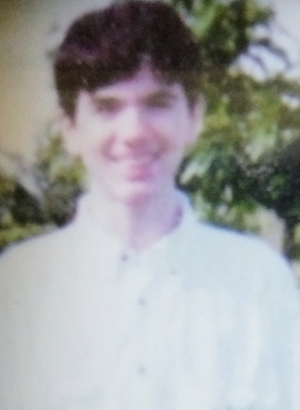 Cary made his stage debut in 1st grade, playing the Wizard in THE WIZARD OF OZ behind a cardboard palace wall. He’s still interested in wizardry, but now it tends to run on A/C current or RF mic packs…. He is an adjunct at CRC, where he teaches theatre and film, while designing and occasionally still busting out the top hat and handlebar moustache to act in shows around the Sacramento area. He’s very happy to be a little part of the first performances from some of this wonderful cast, and to be working with Ryan and the rest of the gang!
Cary made his stage debut in 1st grade, playing the Wizard in THE WIZARD OF OZ behind a cardboard palace wall. He’s still interested in wizardry, but now it tends to run on A/C current or RF mic packs…. He is an adjunct at CRC, where he teaches theatre and film, while designing and occasionally still busting out the top hat and handlebar moustache to act in shows around the Sacramento area. He’s very happy to be a little part of the first performances from some of this wonderful cast, and to be working with Ryan and the rest of the gang!
Ashley Penney
 Ashley is an EGUSD graduate from Sheldon Theaterworks in ’03. She has a BA in Theater and Social Justice from USF and a minor in Dance. She studied with Augusto Boal in 2007 and 2008. She has a Master’s in Education and has been an educator for 12 years. She has taught in five different countries and traveled to 83 different countries. She currently is the theater director at Elizabeth Pinkerton Middle School. She also moonlights at the CRC Theater Program and works professionally as a director and stage manager. She is the mother to Reggie (4) and Liam (9 months). Behind every great theater director is an amazing spouse, thank you Ian Penney for being my biggest supporter. She is the biggest theater nerd and feels honored and grateful to Martin Flynn, Ryan Adame, and the whole cast for their great work.
Ashley is an EGUSD graduate from Sheldon Theaterworks in ’03. She has a BA in Theater and Social Justice from USF and a minor in Dance. She studied with Augusto Boal in 2007 and 2008. She has a Master’s in Education and has been an educator for 12 years. She has taught in five different countries and traveled to 83 different countries. She currently is the theater director at Elizabeth Pinkerton Middle School. She also moonlights at the CRC Theater Program and works professionally as a director and stage manager. She is the mother to Reggie (4) and Liam (9 months). Behind every great theater director is an amazing spouse, thank you Ian Penney for being my biggest supporter. She is the biggest theater nerd and feels honored and grateful to Martin Flynn, Ryan Adame, and the whole cast for their great work.
Slater Saylor
Tricia Tecson
Martin Flynn
David Fulk
Colin Chan
James Downs
Victoria Truesdale
William Finn
Rachel Sheinkin
Rebecca Feldman
The Farm
Acknowledgments
A VERY SPECIAL THANKS TO THE FOLLOWING:
California State University, Sacramento - Department of Theatre & Dance
Cosumnes Oak High School
Eduardo Maximo, Cosumnes River College
Makerspace - Cosumnes River College Division of Automotive, Construction and Design Technology
Paulette Sand Gilbert
Spring 2023 Department of Theatre & Dance Course Offerings
Check out the CRC Department of Theatre & Dance's Spring 2023 class offerings or click here for the full CRC Spring schedule.
Theatre History
TA 300 Introduction to the Theatre (Online, Asynchronous)
TA 302 History and Theory of Theatre I (Online, Asynchronous)
TA 306 Diversity in American Drama (1960 to present) (Online, Asynchronous)
Acting
TA 305 Script Analysis (MW 10:00-11:20 am, CRC Main Campus)
TA 340 Beginning Acting (Tu/Th 10:00-11:20 am, CRC Main Campus)
TA 344 Improvisation and Theatre Games (F 10:00 am-12:05 pm, CRC Elk Grove Campus)
TA 351 Theory and Techniques of Acting II (Tu/Th 1:30-2:50 pm, CRC Main Campus)
Design & Production
TA 401 Children's Literature and Creative Drama (Tu/Th 11:00 am-12:20 pm, CRC Main Campus)
TA 420 Stagecraft (MW 12:00-12:50 pm (LEC), MW 1:00-2:50 pm (LAB), CRC Main Campus)
TA 424 Advanced Technical Theatre (MW 12:00-12:50 pm (LEC), MW 1:00-2:50 pm (LAB), CRC Main Campus)
TA 430 Costume Construction (Tu/Th 10:30-11:20 am (LEC), 11:30 am-12:50 pm (LAB), CRC Main Campus)
